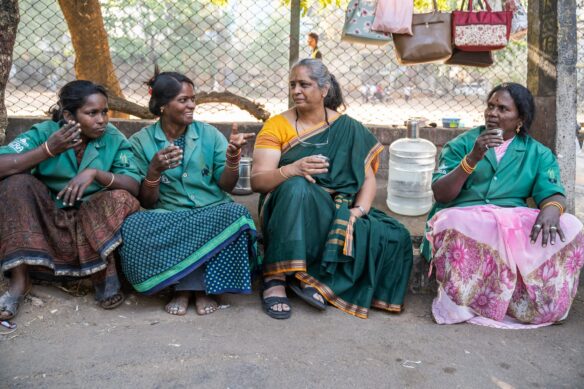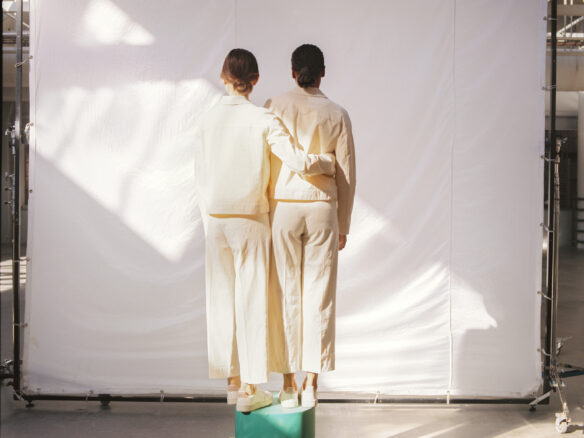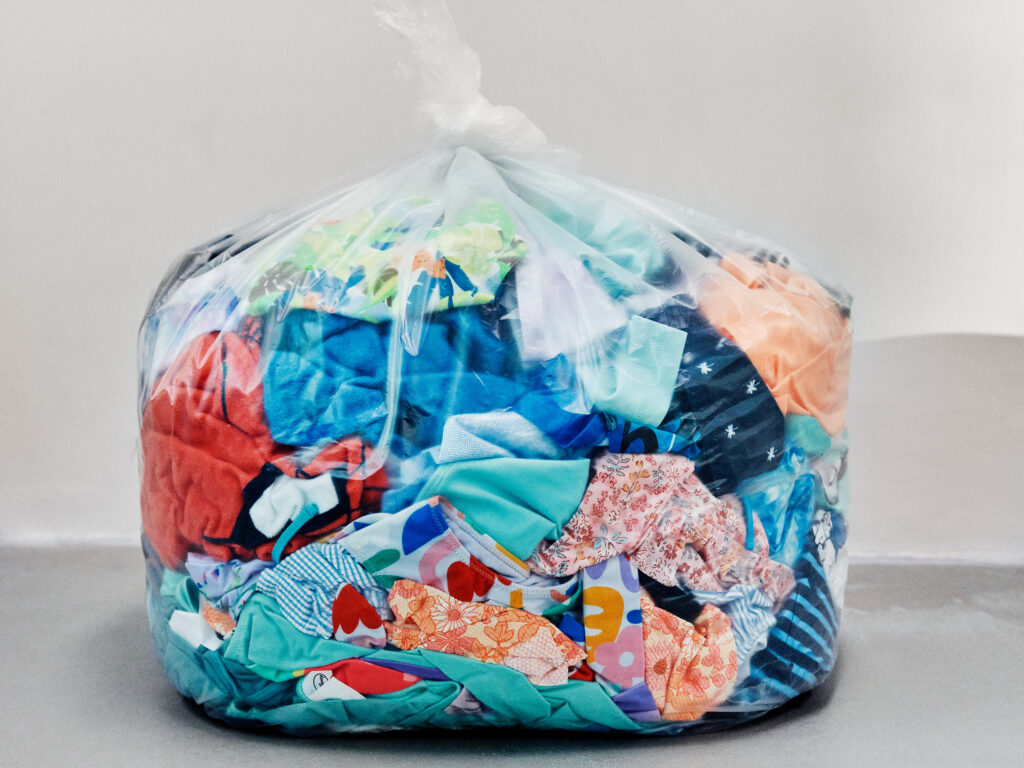
The two new partners are Stichting Enviu Nederland (Enviu) and Intellecap’s Circular Apparel Innovation Factory (CAIF). Together with the existing collective, they will include waste workers already within the Saamuhika Shakti program into two work streams:
- A micro-entrepreneurship model on textile waste
- A circular B2B linen enterprise
“Our goal is to generate additional income streams through textile waste”, says Maria Bystedt, Strategy Lead, H&M Foundation. “Historically there has been minimal income opportunities for waste pickers in textiles, mainly because of the lack of interested buyers. Through this initiative, we are promoting inclusive circularity and improving waste pickers’ livelihood opportunities. This involves setting up grassroots waste enterprises that are managed by waste pickers, establishing connections to resellers and recyclers, and educating the public on proper handling of their textile waste.”
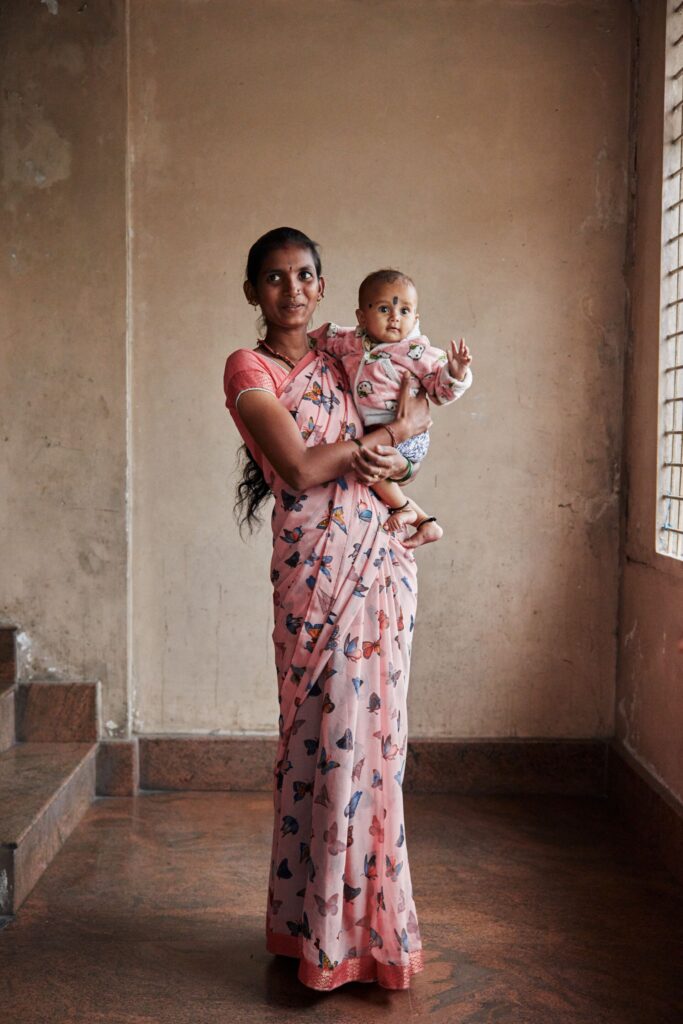
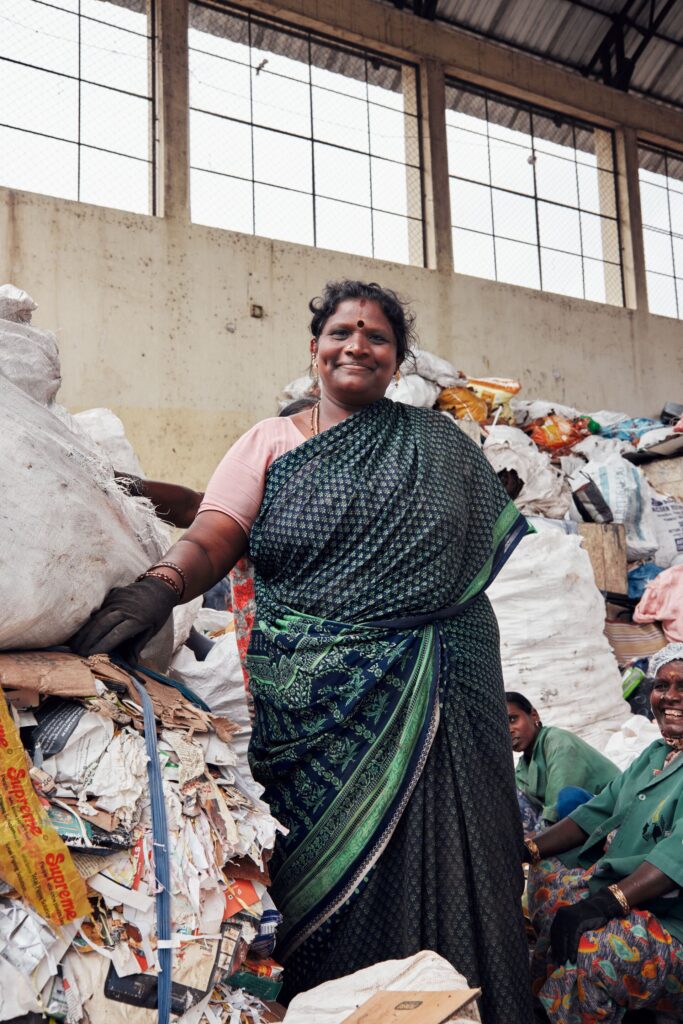
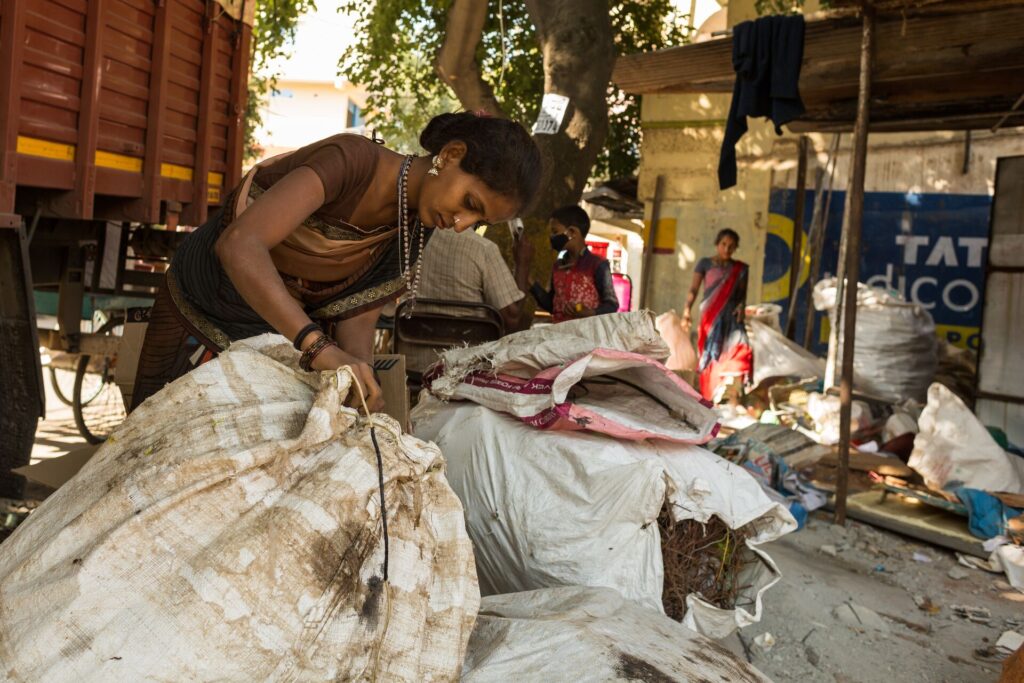
Manjula, Nadiya and Radhika are all involved in waste picking and part of Saamuhika Shakti.
India accounts for 8.5% of global textile waste generation. Out of total textile waste circulation in the country, domestic post-consumer collection contributes 51%, 42% comes from pre-consumer sources, and 7% is imported post-consumer waste. Furthermore, it is estimated that up to 25% of fabric is wasted during the cutting process in apparel production. Innovations in textile waste management are emerging, but as of yet, the economic value chain bypasses the waste picker.
This new setup within H&M Foundation’s initiative Saamuhika Shakti is contributing to a larger multi-year textile-recycling program across India, adding on a social perspective, ensuring that the voices of waste pickers are part of the equation. The larger program is also seed funded by IKEA Foundation.
Micro-entrepreneurship with CAIF
CAIF – which already works with partner Hasiru Dala – will lead the waste-entrepreneurship model. CAIF will use Bengaluru’s existing Dry Waste Collection Centres (DWCCs) as a network of hyperlocal centers to aggregate and segregate post-consumer textile waste.
There, CAIF will work with 6-7 waste entrepreneurs running the DWCCs to adopt the Circular Textiles Waste Model, by building textile waste sorting capacity at their centers and training the waste sorters and waste pickers in the handling of this kind of waste. Their intervention will focus on enabling textile waste collection, sorting, and selling to generate revenue for waste pickers.
“Our goal is to generate additional income streams through textile waste. Through this initiative, we are promoting inclusive circularity and improving waste pickers’ livelihood opportunities.”
Maria Bystedt, Strategy Lead, H&M Foundation
A circular B2B linen enterprise with Enviu
Enviu will work to create a circular B2B textile service model, starting with the hotel industry. Waste hotel linen will be recycled and brought back into the loop as new towels, integrating waste pickers in the process.
Enviu is validating the quality of linen produced from recycled fiber to make sure it can withstand 200 washes and comply with 4-star hotel standards. Enviu will then recruit eight hotels and run trials with a few of them before kicking off the project.
Enviu will then work with CAIF to help train the waste pickers they employ. By December 2023, Enviu looks to collect and divert from landfills close to 30-35 tons of cotton waste sorted by waste workers. Enviu also aims to employ waste workers in alternative livelihood opportunities in the hotels’ laundry, logistics, and warehousing services.
“At Enviu, partnering with Saamuhika Shakti allows us to collectively work towards creating better economic opportunities while addressing systemic challenges, and social issues and creating a circular fashion ecosystem. By joining forces, we strive to create a more dignified future for waste pickers and contribute to building a sustainable world.”
Jiska Coppoolse, Program Lead, Enviu

